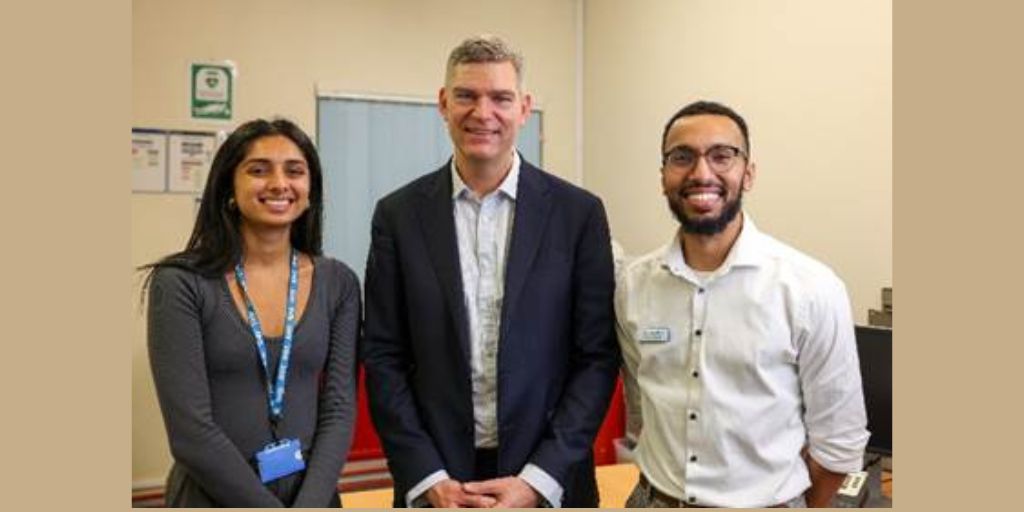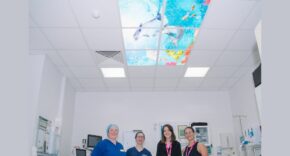
Central Camden PCN has taken a proactive step by introducing a dedicated community bowel clinic at Bloomsbury Surgery in North London. This initiative is giving patients fast, effective care in the comfort of their local surgery – while alleviating the strain on overwhelmed NHS colorectal departments at London hospitals. It is also saving money – over £1,000 for every patient treated in the community.
It is also estimated that as many as 4 in 10 people are currently grappling with symptoms of bowel disorders with rectal bleeding a common concern.
The number of people waiting more than a year-and-a-half for NHS treatment in England is rapidly growing and has hit a record high. New performance data on referral to treatment (RTT) shows patients waiting to start treatment at the end of November 2023 was 7.6 million. Among the 7.6 million:
· 355,412 cases the patient was waiting more than 52 weeks
· 94,563 cases they were waiting more than 65 weeks
· 11,168 cases they were waiting more than 78 weeks
· 227 cases they were waiting more than 104 weeks – that’s over 2 years
Patients who are categorised as ‘low risk’ of bowel cancer may find themselves languishing in the existing ‘routine pathway,’ as ‘high risk’ patients (where cancer is suspected) must be prioritised. “Typically these ‘low risk’ patients are the ones waiting over 70 weeks to be seen,” explains Dr Ammara Hughes, General Practitioner, Bloomsbury Surgery and Clinical Director, Central Camden PCN. “At our rectal pathology clinic we have staff trained to use a handheld device which gives a high-definition look inside the colon. We can expediently rule out rectal cancer and provide prompt treatment for non-cancerous bowel issues.”
The clinic owes its operational capability to the recent acquisition of a cutting-edge British medical technology; a digital rectoscope called LumenEye X1. It can get a clear view of the inside of the lower part of the bowel. Giving a direct visualisation of the anorectal tract in the general practice setting, can quickly identify what the problem might be – either eliminating the need for formal endoscopy or identifying cases that require a colonoscopy due to polyps or other serious pathology being found – simultaneously reducing the burden on endoscopy services and improving the diagnosis of cancer in patients who do not meet the criteria for urgent referral.
Introducing this revolutionary service is set to save North Central London Integrated Care Board almost £250,000 in costs. Each patient treated in the community (rather than at an NHS hospital) delivers a saving of estimated £1,178 and the clinic expect they will see over 200 patients by the end of the pilot.1
Providing assessment and treatment, the dedicated service is run by a team of skilled Physician Associates (PAs) under the guidance of Colorectal Surgeon, Mr Alexander Von Roon from University College London Hospitals NHS Foundation Trust (UCLH). He comments: “We have seen really excellent results from the community bowel clinic. The staff have been trained in how to take histories, do examinations, do rectoscopy and proctoscopy with the help and support of the LumenEye device. We can make patients feel better and take them out of the hospital capacity thus freeing up the hospital’s capacity for our cancer patients who may be in need of more specialist care. We’re shortening the treatment time, and the time to diagnosis.”
It is thought that as many as 48% of people in the UK with digestive complaints put off going to the doctor– because they are too embarrassed or hope symptoms will go away on their own. Physician Associate, Vidhi Patel who has been working in the bowel clinic explains: “At Bloomsbury, we have patients from diverse backgrounds and we understand that there are also cultural barriers for many women who are suffering from bowel complaints. As a female practitioner it is wonderful to be able to help these women who may have refused treatment from a male doctor. I also think that being seen in a local GP surgery room, rather than the hospital is far less daunting than a hospital.”
“The Bloomsbury bowel clinic is an excellent example of what can be achieved” remarks Mr Dale Vimalachandran, consultant Colorectal Surgeon, Bowel Research UK Research Grants committee member and Surgical Speciality Lead at RCS Eng & ACPGBI. “It has the potential to significantly speed up the treatment of low-risk patients at their local GP surgery and frees up capacity in hospitals to deal with the most urgent patients, including those with ulcerative colitis and bowel cancer. Bowel cancer tragically takes the lives of over 16,000 people each year and remains the second most deadly cancer in the UK. Initiatives like this, alongside the research Bowel Research UK is funding into new treatments and potential cures, demonstrate exciting progress in improving the lives of people affected by bowel cancer and other bowel conditions. Bowel Research UK is a national bowel research charity dedicated to funding new treatments and potential cures for bowel cancer, inflammatory bowel disease and other bowel disorders.”












